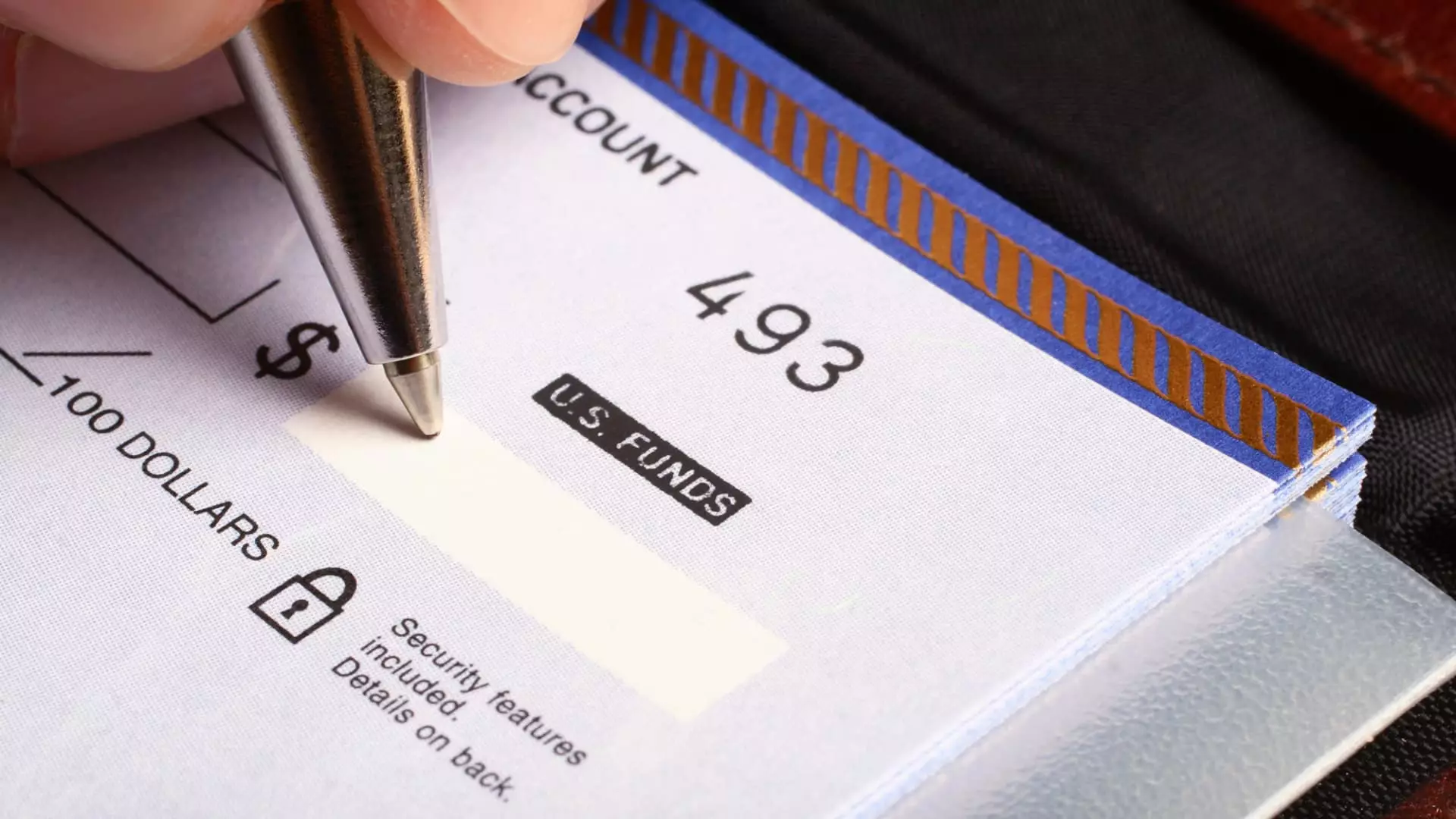The announcement that President Trump signed an executive order on March 25 to eliminate paper checks from federal financial transactions by September 30 sparked a myriad of emotions across the nation. While many financial institutions and banking groups embraced the decision with open arms, others raised genuine concerns, particularly for the vulnerable populations who still rely on paper checks. The underlying sentiment behind this transition is clear: it is high time that we prioritize efficiency, security, and modernization over outdated financial practices.
This move is not merely a bureaucratic shift; it represents an essential evolution in how the government handles monetary transactions. The days of waiting for checks to arrive in the mail, only to run the risk of them being lost or stolen, are outdated in today’s digital age. With fraud rates skyrocketing—estimated by the U.S. Government Accountability Office to cost the federal government up to $521 billion annually—it’s clear that clinging to obsolete systems will only weaken our economic fabric.
The Fragility of Paper
Paper checks have proven increasingly fragile in an age where digital innovations abound. Lashed to the risks of fraud, theft, and inefficiencies, the justification for paper checks seems to disintegrate upon closer scrutiny. The staggering statistics about check fraud highlight a significant reality; as per Haywood Talcove from LexisNexis Risk Solutions, criminals feast on checks like a buffet spread. In contrast, electronic payment systems are equipped with authentication measures and encryption protocols that make them far less susceptible to such attacks.
Many of us would like to think we are more sophisticated than the check-writers of the past—people who rely on checks often represent demographics that may not have easy access to banking services or suffer from a lack of digital literacy. The reluctance to shift to electronic payments extends not from choice but from necessity. While it is admirable to advocate for modern solutions, we must not lose sight of the fact that some people are lagging, left to navigate their fears of technology amidst this relentless evolution.
The Generational Shift
Today’s younger generations are the first to live their whole lives in an era dominated by digital currency. A 2024 GoBankingRates survey revealed that 46% of Americans did not write a single check in the prior year, underscoring the generational divergence in payment preferences. With mobile payment solutions like Apple Pay, Venmo, and Zelle at their fingertips, young people are redefining what a financial transaction looks like. The absence of checks in their daily interactions is telling; they may never even learn the art of writing one at all.
Yet, as the tide turns, we see a contradiction. Those who continue to write checks tend to be from older generations who may be marginalized by technology. They risk becoming not only isolated from the changing financial landscape but also potential victims of fraud, as criminals adapt to catch them off-guard. There is an urgent need to create supportive frameworks that ensure these populations have viable pathways to adapting to electronic payments.
Guardians of Modern Payments
Banking institutions have been quick to praise this executive order, lauding its potential to enhance security and efficiency in federal disbursements. Rob Nichols, the CEO of the American Bankers Association, emphasizes that this move is overdue. At a time when so many businesses are moving away from checks, it’s about time the government does the same. Adopting electronic payments is more than a trend; it’s a necessary step for streamlining governmental processes to better serve citizens.
Despite the clear advantages, however, there must be provisions to protect vulnerable populations. The benefits of migrating to electronic payments should not come at the cost of leaving some citizens behind. A blind rush to digitization must be tempered with education and support for those who find themselves intimidated by technology.
The Future of Transactions
As checks are becoming relics of an older financial system, their decline must also be accompanied by a transformational vision for the future. There should be no illusion that a transition to a “check zero” world represents just a polished upgrade. Instead, we must ensure that the move to modern payment systems is inclusive and equitable.
By maintaining a public dialogue about how to facilitate this transition—especially for those who are less tech-savvy—we create opportunities to empower people. We can garner support across not just the banking community, but also the civic sector, to create solutions that nurture financial literacy and accessibility.
The innovation in payments is here, and while we should embrace the advancements of our time, we must simultaneously advocate for every citizen’s right to thrive in this new landscape. It’s time to eradicate the paper check once and for all and step confidently into the future of finance.

